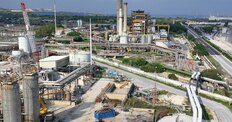- The plan involves a €2 billion investment to reduce emissions by 1 million tonnes of CO2.
- Closure of Brindisi, Priolo, and Ragusa plants will enable new sustainable projects.
- The transformation aims for completion by 2029, focusing on renewables and specialized products.
- Versalis will reduce exposure to basic chemicals, a sector in decline in Europe.

Investment and Emission Reduction
Eni has announced a €2 billion investment as part of its 2024-2027 Strategic Plan to transform its chemicals business, focusing on decarbonization. The initiative aims to cut emissions by approximately 1 million tonnes of CO2, representing about 40% of Versalis' emissions in Italy. This will involve setting up new industrial plants aligned with energy transition goals, including sustainable chemistry, biorefining, and energy storage.
Plant Closures and New Developments
To facilitate the construction of these new facilities, Eni will phase out operations at the cracking plants in Brindisi and Priolo, as well as the polyethylene plant in Ragusa. The transformation plan is expected to have a positive impact on employment, counteracting the negative effects of the ongoing crisis in the European chemical sector.
Strategic Shift and Market Focus
By 2029, Eni aims to develop new chemical platforms in renewables, circular, and specialized products, areas where Versalis has established a strong market position. The company plans to significantly reduce its exposure to basic chemicals, a sector facing structural decline in Europe, which has resulted in substantial economic losses over the past 15 years.
Corporate Structure and Future Goals
Eni will implement a new corporate structure aligned with a satellite model, focusing on biochemicals, downstream operations, circularity, and basic chemicals. This strategy is consistent with Eni's technology-driven approach, emphasizing energy transition businesses with competitive advantages. The transformation will support a high-value downstream portfolio, including compounding, specialized polymers, biochemistry, and circular economy products.

